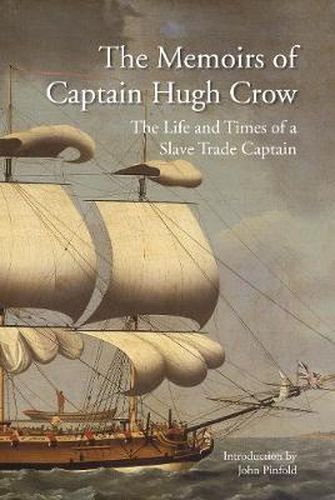Readings Newsletter
Become a Readings Member to make your shopping experience even easier.
Sign in or sign up for free!
You’re not far away from qualifying for FREE standard shipping within Australia
You’ve qualified for FREE standard shipping within Australia
The cart is loading…






Hugh Crow was the captain of a slave-trading vessel which made one of the last legal journeys across the Atlantic with its ‘human cargo’. This is a highly engaging, rare, first-hand account written by a staunch defender of the slave trade. Crow depicts himself as an enlightened practitioner of the trade, paying close attention to the welfare of his ‘negroes’, which he equates with financial success in his business.
Crow’s memoirs bring to life the everyday aspects of the slave trade and describe the harsh practicalities of life at sea, where on average a fifth of the crew did not survive the crossing. The narrative is peppered with social comment on the propriety of the slave trade and conditions in West Africa and the Caribbean. At the same time, Crow expresses a warm attachment towards individual slaves which was sometimes reciprocated, most remarkably in a song composed by the slaves about him which is reproduced in this book.
The introduction chronicles Hugh Crow’s life, his entry into the slave trade and his rise as one of the foremost slave captains of his day. Quoting extensively from original sources, it sets him in the context of the eighteenth-century mercantile community which fought hard to defend itself against the humanitarian campaign to abolish the slave trade. He emerges as a colourful if flawed figure from this highly practical, personal, and eye-opening look at the slave trade.
$9.00 standard shipping within Australia
FREE standard shipping within Australia for orders over $100.00
Express & International shipping calculated at checkout
Hugh Crow was the captain of a slave-trading vessel which made one of the last legal journeys across the Atlantic with its ‘human cargo’. This is a highly engaging, rare, first-hand account written by a staunch defender of the slave trade. Crow depicts himself as an enlightened practitioner of the trade, paying close attention to the welfare of his ‘negroes’, which he equates with financial success in his business.
Crow’s memoirs bring to life the everyday aspects of the slave trade and describe the harsh practicalities of life at sea, where on average a fifth of the crew did not survive the crossing. The narrative is peppered with social comment on the propriety of the slave trade and conditions in West Africa and the Caribbean. At the same time, Crow expresses a warm attachment towards individual slaves which was sometimes reciprocated, most remarkably in a song composed by the slaves about him which is reproduced in this book.
The introduction chronicles Hugh Crow’s life, his entry into the slave trade and his rise as one of the foremost slave captains of his day. Quoting extensively from original sources, it sets him in the context of the eighteenth-century mercantile community which fought hard to defend itself against the humanitarian campaign to abolish the slave trade. He emerges as a colourful if flawed figure from this highly practical, personal, and eye-opening look at the slave trade.